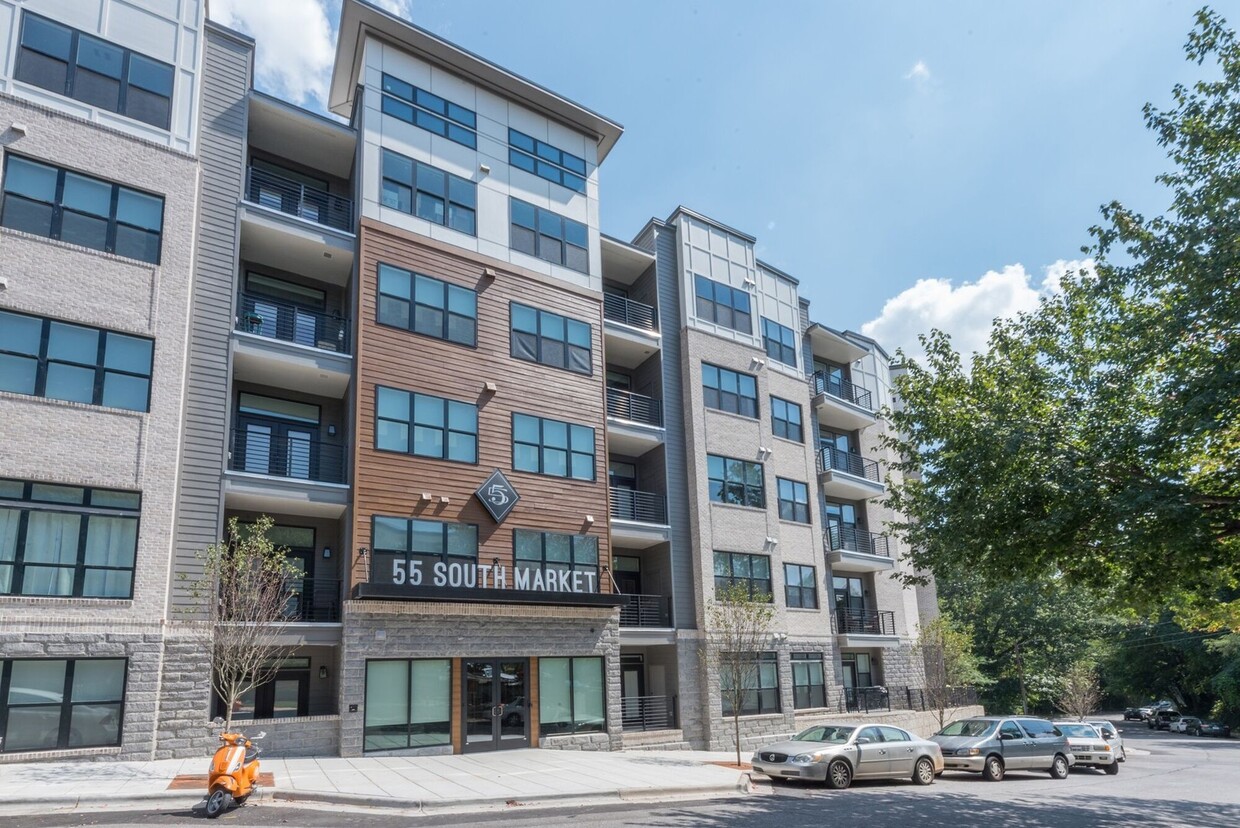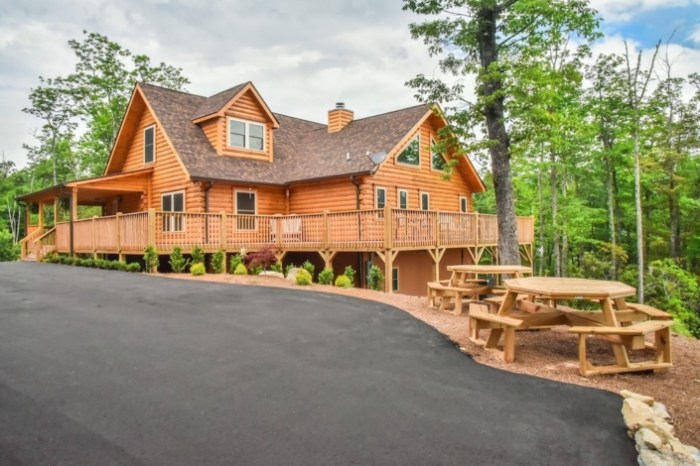Asheville Houses for Rent A Comprehensive Guide
Asheville Rental Market Overview
The Asheville rental market is currently experiencing high demand, leading to competitive rental rates and a limited inventory of available properties. This is largely due to Asheville’s growing popularity as a tourist destination and a desirable place to live, coupled with relatively limited new construction. Rental prices vary significantly depending on property type, size, location, and amenities.
Average Rental Prices Across Property Types
Average rental prices in Asheville are influenced by factors like location, property size, and amenities. Single-family homes generally command the highest rents, followed by townhouses, condos, and apartments. Expect to pay a premium for properties with desirable features like updated kitchens, hardwood floors, and private outdoor spaces.
Rental Rates in Various Asheville Neighborhoods
| Neighborhood | Average Rent (1 Bedroom) | Average Rent (2 Bedroom) | Average Rent (3 Bedroom) |
|---|---|---|---|
| Downtown Asheville | $1,500 | $2,200 | $3,000 |
| North Asheville | $1,400 | $1,900 | $2,600 |
| West Asheville | $1,300 | $1,800 | $2,400 |
| South Asheville | $1,200 | $1,700 | $2,200 |
Note: These are average estimates and actual rental rates can vary.
Typical Rental Lease Terms
Standard lease terms in Asheville typically range from 6 to 12 months. Shorter-term leases may be available, but often come with a higher monthly rental rate. Lease agreements usually include clauses related to rent payments, property maintenance, pet policies, and lease termination.
Property Types and Features
Asheville offers a diverse range of rental properties to suit various needs and budgets. Understanding the common property types and their features is crucial for finding the right fit.
Common Property Types
- Single-family homes
- Townhouses
- Apartments
- Condos
Typical Features in Asheville Rental Properties
Many Asheville rental properties include modern appliances such as refrigerators, stoves, dishwashers, and microwaves. Common amenities can include laundry facilities (in-unit or on-site), off-street parking, and yards or patios. Newer constructions may feature updated bathrooms and kitchens, central air conditioning, and energy-efficient features.
Average Rental Costs by Property Size
| Size (sq ft) | Average Monthly Rent | Number of Bedrooms | Number of Bathrooms |
|---|---|---|---|
| 800-1000 | $1,400 – $1,800 | 1-2 | 1 |
| 1000-1500 | $1,800 – $2,500 | 2-3 | 1-2 |
| 1500+ | $2,500+ | 3+ | 2+ |
Note: These are average estimates and actual rental rates can vary widely based on location and amenities.
Neighborhood Characteristics

Source: tripadvisor.com
Asheville’s diverse neighborhoods each offer unique advantages and disadvantages for renters. Consider factors like proximity to amenities, commute times, and overall atmosphere when choosing a neighborhood.
Popular Asheville Neighborhoods

Source: apartments.com
Downtown Asheville offers vibrant city life with easy access to restaurants, shops, and cultural attractions. North Asheville provides a more residential feel with tree-lined streets and a quieter atmosphere. West Asheville boasts a thriving arts scene and a more eclectic vibe. South Asheville offers a mix of residential areas and suburban amenities. Each neighborhood has its own distinct character and appeal.
Neighborhood Comparison

Source: jonesaroundtheworld.com
| Neighborhood | Advantages | Disadvantages | Average Commute Time (to Downtown) |
|---|---|---|---|
| Downtown Asheville | Walkability, proximity to amenities | Higher rental costs, noise | 0-10 minutes |
| North Asheville | Quiet residential area, good schools | Further commute to downtown | 10-20 minutes |
| West Asheville | Eclectic atmosphere, vibrant arts scene | Can be hilly, limited parking | 10-15 minutes |
| South Asheville | More affordable options, suburban feel | Longer commute to downtown | 15-25 minutes |
Visual Representation of Asheville Neighborhoods
Imagine a map of Asheville with concentric circles radiating outwards from downtown. The innermost circle represents the most expensive neighborhoods (Downtown and parts of North Asheville), with rental prices decreasing as you move towards the outer circles. Different colors could represent various neighborhoods, grouping them based on price range and proximity to the city center. This visual would clearly illustrate the relationship between location, rental costs, and access to downtown amenities.
Rental Process and Considerations
Renting a house in Asheville involves several key steps and considerations. Understanding the process and factors to consider will help ensure a smooth and successful rental experience.
Steps Involved in Renting a House
The process typically involves searching for properties online or through real estate agents, scheduling viewings, submitting rental applications, undergoing background checks and credit checks, negotiating lease terms, and signing the lease agreement. It is advisable to have all necessary documents ready in advance.
Finding the perfect Asheville house for rent can be a rewarding experience, offering access to the city’s vibrant arts scene and stunning mountain views. If you’re considering a move further west, however, you might explore options like those available at topeka houses for rent , which offer a different kind of charm. Ultimately, the best choice depends on your individual preferences, but returning to Asheville, the rental market here offers a diverse range of properties to suit various needs and budgets.
Important Factors for Renters
Renters should carefully consider their budget, commute time to work or school, desired amenities, and the overall neighborhood atmosphere. Researching different neighborhoods and comparing rental rates is essential before making a decision. Understanding lease terms and clauses is also vital.
Common Clauses in Asheville Rental Agreements
Common clauses include those related to rent payment, late fees, property maintenance responsibilities, pet policies (if applicable), lease termination, and notice periods. Reviewing the lease carefully before signing is crucial to avoid misunderstandings or disputes.
Resources for Finding Rentals
Numerous resources are available to assist in finding Asheville houses for rent. Utilizing a combination of online and offline methods can maximize your chances of finding a suitable property.
Reliable Resources for Finding Rentals
- Online listing sites (Zillow, Apartments.com, Trulia)
- Local real estate agents
- Classified ads in local newspapers or community publications
- Networking with friends and colleagues
Effective Use of Online Search Filters
Utilize online search filters to refine your search by specifying your desired criteria such as rental price range, number of bedrooms and bathrooms, pet policies, and proximity to specific amenities or neighborhoods. This will significantly narrow down the search results and save you time.
Communicating with Landlords and Property Managers
Maintain clear and professional communication with landlords and property managers throughout the rental process. Promptly respond to inquiries, ask clarifying questions, and express your interest in a timely manner. A positive and respectful approach can greatly enhance your chances of securing a rental property.
Essential Questionnaire
What is the average security deposit in Asheville?
Security deposits typically range from one to two months’ rent, depending on the property and landlord.
Are pets allowed in most Asheville rentals?
Pet policies vary widely. Many landlords allow pets, but often with additional fees and restrictions. Always inquire directly with the landlord or property manager.
How long is the typical lease term in Asheville?
Twelve-month leases are common, but shorter-term leases (6 months or less) may be available, often at a slightly higher monthly rate.
What are the best neighborhoods for families in Asheville?
Montford, Kenilworth, and the North Asheville area are popular choices for families, offering excellent schools and family-friendly amenities.




















